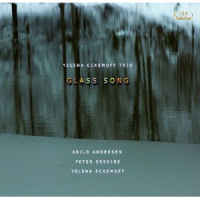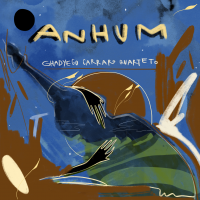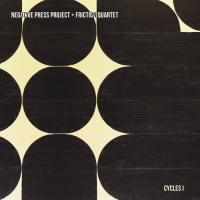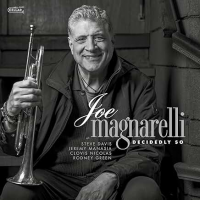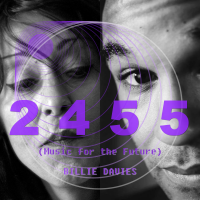Home » Jazz Articles » Extended Analysis » Yelena Eckemoff: Yelena Eckemoff: Glass Song
Yelena Eckemoff: Yelena Eckemoff: Glass Song
Yet if their potential collaboration has been separated all these years by mere water, it is made a reality by the same in "Melting Ice." In solace but never solitude, they forge a balance that is intuitive and years in the making: one spinning a hub of recollection, the other spoking it with sunlit avenues of possibility. It is a rural introduction, a moving picture of ice-coated branches and a burning dawn that makes of them dripping icicles of thought. As if to embrace such evocative response, Eckemoff includes, in lieu of liner notes, poetic reflections on each track of this winter in transition:
...hidden forces of spring are awakening...
and the stiff ground comes alive with tiny multiple streams.
As is clear from her diarist's approach, writing and music are intimately connected. And how does this shape her creative spirit? "I always have something in mind behind my music. My subjects this time are poetic, and so the liner notes reflect that. I thought they might open up other channels. All arts are interconnected."
Therein lies her knack for atmospheres. One needn't look at a single song name to step into its picture. The title track, for one, features Eckemoff playing water-filled glasses, which Erskine complements with his sparse touches. The deep, crystalline changes and wandering qualities find backbone in Andersen's subdued yet melodically rich playing. This track grew out of Eckemoff's improvisations with the glasses. "I was under the spell of the sound, of its purity," she recalls. "There was something magical about it. It was the first brick in the project I thought Arild would love, and he did. It was the beginning of everything." From this we can sense just how openly Eckemoff respects her band mates, how much freer she becomes as she glues more feathers to her improvisatory wings. Between the rubato internal dialogues of "Polarity," which boasts a notable monologue from Andersen, and the moderately syncopated "Dripping Icicles," there is plenty of blush to the snow. There is the sense of a spirit of nature aroused from slumber, such that "Whistle Song" moves like an animal through that snow, a squirrel leaving a trail of hopped tracks and a playful spirit threading them to the tree where they stop.
These distortions of time are part and parcel of Eckemoff's compositional process: "I may not have an agenda, but I do have a feeling. It's like slow motion. I don't know what's going to come next until I get there. I improvise it, but not in real time." Her rigorous classical background inevitably seeps through. The Debussy-an chording of "Sunny Day in the Woods," as an example, contrasts a steady pulse in left hand with playful energies in the right, making for her most beautiful playing on record to date. Are these influences intentional or do they creep in of their own accord? "The latter," Eckemoff says emphatically. "You hear this especially in European jazz. In many ways, I am a classical composer who uses the sounds and principles of jazz as a means of expression. There is virtually no boundary between the two. Everybody will have their own sound, because everybody has different proportions of the two within them. It's important to remember with whom you're playing. Jazz musicians have to play instantly, almost without preparation. That was Arild's only requirement: that he needn't think too much about what's going on, but to feel the music and create his way through it." To be sure, that freedom can be heard in Andersen's solo during the penultimate "Elegy." Here, he brings a taste of the nostalgia that effuses his early quartets, albeit with a quieter pathos, before the profound, scintillating farewell of "March Rain."
This is Eckemoff's most mature album, all the more so for its personnel. Despite his restraint, Erskine evokes a wealth of color and detail, drawing out an emotional body from the piano's interstices. Andersen, meanwhile, brings a needed tactile energy to the session. As for the composer herself, just how positively the project has affected her, how it softens and expands her boundaries and bespeaks a willingness to hone her craft on the grinding stone of experience, can be heard in the music. Eckemoff can be heard thinking out loud through a strong sense of narrative, particularly in the way she begins and ends her pieces.
This is not jazz about technicality, but rather about soul. And it's only the beginning:
Dreaming of good things yet to come,
of love yet to bloom,
of music yet to be made...
Track Listing
Melting Ice; Glass Song; Cloud Break; Polarity; Dripping Icicles; Sweet Dreams; Whistle Song; Sunny Day In The Woods; Elegy; March Rain.
Personnel
Yelena Eckemoff: piano; Arild Andersen: double-bass; Peter Erskine: drums, percussion.
Album information
Title: Glass Song | Year Released: 2013 | Record Label: L & H Production
Tags
PREVIOUS / NEXT
Support All About Jazz
 All About Jazz has been a pillar of jazz since 1995, championing it as an art form and, more importantly, supporting the musicians who make it. Our enduring commitment has made "AAJ" one of the most culturally important websites of its kind, read by hundreds of thousands of fans, musicians and industry figures every month.
All About Jazz has been a pillar of jazz since 1995, championing it as an art form and, more importantly, supporting the musicians who make it. Our enduring commitment has made "AAJ" one of the most culturally important websites of its kind, read by hundreds of thousands of fans, musicians and industry figures every month.


